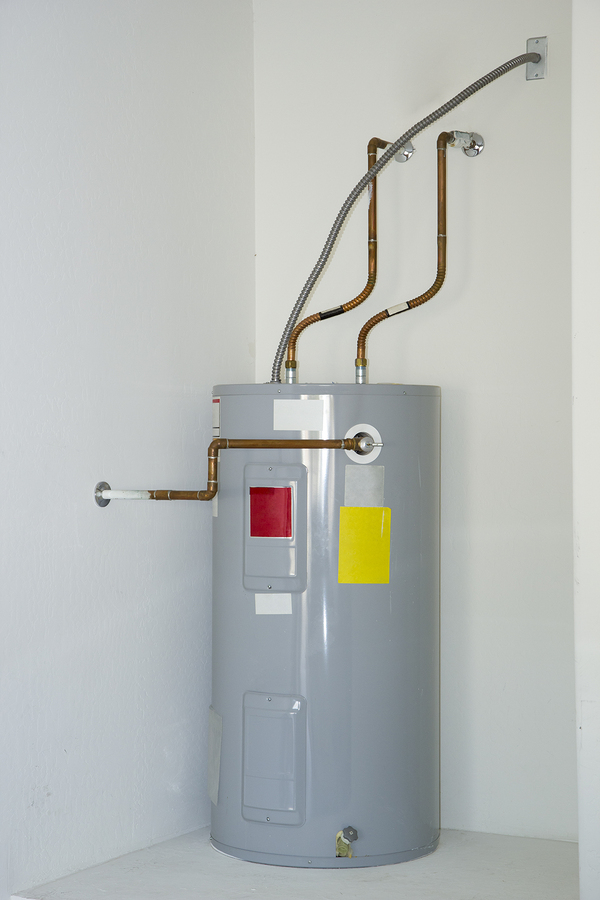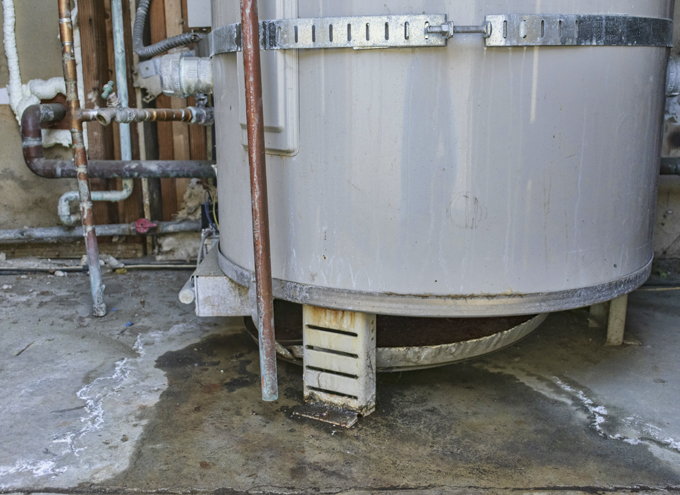Important Actions Residential Property Owners Should Take When Managing Broken Heating Units
Important Actions Residential Property Owners Should Take When Managing Broken Heating Units
Blog Article
What are your thoughts on Water Heater Burst?

Whether it lies in the cellar or a different room, damaged water heaters can create tension. A typical unit holds 80 gallons, so an overnight leakage will lead to a flood. This results in significant residential or commercial property damages with soaked walls and floorings. Besides, having no warm water supply is likewise bothersome. If you are dealing with these problems, keep in mind of the following:
Shut Down Power Source
Before calling the plumber, shut down a gas water heater by transforming the temperature level dial. This is typically situated at the top of the thermostat. If you have a model that operates on electric power, switch off the breaker. This will certainly prevent electrocution, specifically if there is a leakage as water is a conductor. Normally, the burner turns off when the water hits a certain temperature. But with a busted container, it may malfunction. Cutting it off ensures you stay secure.
Cut Off the Cold Water Supply
Cut off the containers faucet water supply from the resource. This goes from your primary water line into the container. When your storage tank is in good condition, the cold water quits filling when the tank is complete. However because it is dripping, the water will remain to stream. Close the shutoff located at the top of the heater. Turn this clockwise to shut it off. You should turn off that main water supply line outside your building if you can not discover it or reach it.
Call the Plumber
After doing the first two safety actions, you need to call your plumber to find as soon as possible to deal with a burst water heater. Remember that your device will not simply conk out drastically overnight. There are usually indications that your aging water heater has sediment build-up in the inside. Remember of the following:
Instead, as quickly as you spot these indications, have an expert come to evaluate your water heating unit give thanks to. Usually, water heating systems have a lifespan of regarding 8 to 12 years.
Tidy up Residential or commercial property
After calling the plumber, record damages by remembering as well as images so you can assert your homeowner's insurance coverage. From there, start the instant clean-up. Secure any type of crucial belongings to prevent further saturating. Then, eliminate any type of standing water to stop mold as well as mold development. Use that to drain the water if you have a submersible water pump. Or else, the standard bucket approach will also function. Try to mop out everything, consisting of baseboards as well as wall surfaces. Maintain them running to keep air flowing if you have an electrical fan and also dehumidifier. This will aid discourage mold and mildew development.
Remember, if you see any kind of problems with your hot water heater, call the pros right away. You can not take this trouble gently due to the fact that a defective thermostat can increase water temperature to a dangerously high level, bring about unexpected burns. A damaged heating system pressure relief valve can likewise cause a surge. For finest outcomes, get a yearly check so your unit obtains examined, cleansed, drained, as well as refilled, ensuring optimal performance.
Whether it is located in the basement or a separate room, busted water heating units can create stress and anxiety. Prior to calling the plumber, shut off a gas water heating unit by transforming the temperature dial. After doing the initial 2 safety steps, you should call your plumber to come right away to deal with a burst water heater. If you have a submersible water pump, utilize that to drain the water. Remember, if you discover any concerns with your water heater, call the pros right away.
Is My Water Heater Broken?
The Water Heater is Old
No appliance will last forever. This includes a home’s water heater. During its lifespan, residents are going to face a situation where a new water heater installation will be necessary. The biggest problem with this is that most people are not sure when their water heater expires. Not knowing this can lead to serious risks if the unit begins to act up due to old age.
Most makes and models of water heaters will last between eight and 10 years. While 10 years is the age when water heater replacement is highly recommended, the need to replace the unit may occur before this time or after. If the unit doesn’t show any symptoms of a problem, it is a good idea to replace it at the 10-year mark (from the manufacture date).
Some of the symptoms that indicate a new unit is needed include rusting, leaks, noises, and a failure to heat up the water. Also, note that not all units have a 10-year life expectancy. The main exception to this rule is that a gas unit will last for six to eight years.
Rusty Heater Inlet Valve or Water
While steel is the strongest material on earth, it does have a weakness – rust. If corrosion occurs on a steel surface, it will begin to spread and eat through the steel in certain areas. On water tanks and pipes that are made of steel, rust is a warning sign of an impending leak.
The issue for many is trying to figure out if the rust is coming from the water heater or the pipes that lead to the faucet. If rust is seen, it is a clear indication that water heater service from the professionals is needed.
If rusty water appears out of the faucets in the bathtub or sink, it likely means a rusty water heater. If there is rust near the water inlet or the pressure relief valve, rust has likely developed inside the tank. If tap water appears rusty, it may be an issue with the pipes.
Strange Sounds from the Water Heater
Are there strange sounds coming from the tank? As a water heater gets older, rumbling noises may develop and get louder and louder as the water in the tank heats up. In homes where large amounts of hot water are used, the issue is likely going to be even more obvious when more serious issues arise. If there is a strange or loud noise coming from the unit, it is probably because of sediment buildup. A good way to remedy this problem is by flushing the heater. If this does not work, then a new unit may need to be installed.
Leaks
As a water heater gets closer to the end of its useful life, there is a higher chance there will be water around the tank. If there is water, this usually means leaks are occurring. Based on where the unit is located in the home, a leak may result in serious property damage.
Leaks are usually caused by expansions in the metal tank. The expansions occur as time passes and as the inside body of the tank is exposed to multiple heating cycles per day. When a fracture forms, the gap will be slight enough to hold the water in; however, in more serious situations, this will not be the case. If the tank is idle, the water will not leak but when the metal expands during each heating system, small amounts of water will get through the gap.

Do you enjoy more info about Water Heater Burst? Create a short review directly below. We'd be delighted to listen to your feelings about this content. In hopes to see you back again in the future. Sharing is good. Helping others is fun. I enjoy reading our article about Water Heater Repair.
Act, don't delay! Report this page